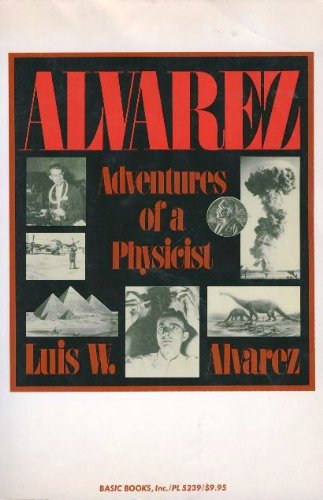How Peer Review Hurts Science
In my considered opinion the peer review system, in which proposals rather than proposers are reviewed, is the greatest disaster visited upon the scientific community in this century. No group of peers would have approved my building the 72-inch bubble chamber. Even Ernest Lawrence told me he thought I was making a big mistake. He supported me because he knew my track record was good. I believe that U.S. science could recover from the stultifying effects of decades of misguided peer reviewing if we returned to the tried-and-true method of evaluating experimenters rather than experimental proposals. Many people will say that my ideas are elitist, and I certainly agree. The alternative is the egalitarianism that we now practice and I've seen nearly kill basic science in the USSR and in the People's Republic of China.
Notes:
An interesting argument that the peer review process hurts science because ideas are evaluated by themselves, while the track record of the scientist should be considered.
Folksonomies: peer review
Taxonomies:
/business and industrial/advertising and marketing/marketing (0.502366)
/art and entertainment/music/music genres/classical music (0.497292)
/science (0.478225)
Keywords:
peer review (0.927886 (negative:-0.733848)), Peer Review Hurts (0.849564 (negative:-0.733848)), peer review process (0.784229 (negative:-0.733848)), track record (0.703489 (positive:0.261994)), 72-inch bubble chamber (0.685880 (neutral:0.000000)), misguided peer (0.579875 (negative:-0.512655)), interesting argument (0.543158 (negative:-0.733848)), tried-and-true method (0.523582 (negative:-0.512655)), big mistake (0.520979 (negative:-0.772240)), greatest disaster (0.516118 (positive:0.395725)), experimental proposals (0.514331 (negative:-0.512655)), Ernest Lawrence (0.510592 (negative:-0.772240)), scientific community (0.508112 (positive:0.395725)), U.S. science (0.482311 (negative:-0.512655)), basic science (0.480122 (neutral:0.000000)), ideas (0.371786 (negative:-0.475349)), people (0.358786 (negative:-0.216849)), egalitarianism (0.358437 (neutral:0.000000)), experimenters (0.356965 (negative:-0.512655)), peers (0.350894 (neutral:0.000000)), scientist (0.346472 (neutral:0.000000)), USSR (0.343376 (neutral:0.000000)), decades (0.343111 (negative:-0.512655)), opinion (0.338939 (neutral:0.000000)), proposers (0.336060 (neutral:0.000000)), century (0.335744 (positive:0.395725)), group (0.335229 (neutral:0.000000)), building (0.335084 (neutral:0.000000)), alternative (0.332925 (neutral:0.000000))
Entities:
Ernest Lawrence:Person (0.855668 (negative:-0.427495)), scientist:JobTitle (0.533989 (neutral:0.000000)), USSR:Country (0.500763 (neutral:0.000000)), Republic of China:Organization (0.487023 (neutral:0.000000)), U.S.:Country (0.392282 (negative:-0.512655)), 72-inch:Quantity (0.392282 (neutral:0.000000))
Concepts:
Peer review (0.974957): dbpedia | freebase
Scientific method (0.581616): dbpedia | freebase
Review (0.530916): dbpedia | freebase
Communist states (0.374902): dbpedia
Experiment (0.371831): dbpedia | freebase | opencyc
People's Republic (0.355110): dbpedia | freebase | yago
North Korea (0.351900): website | dbpedia | ciaFactbook | freebase | opencyc | yago
Science (0.351251): dbpedia | freebase | opencyc






